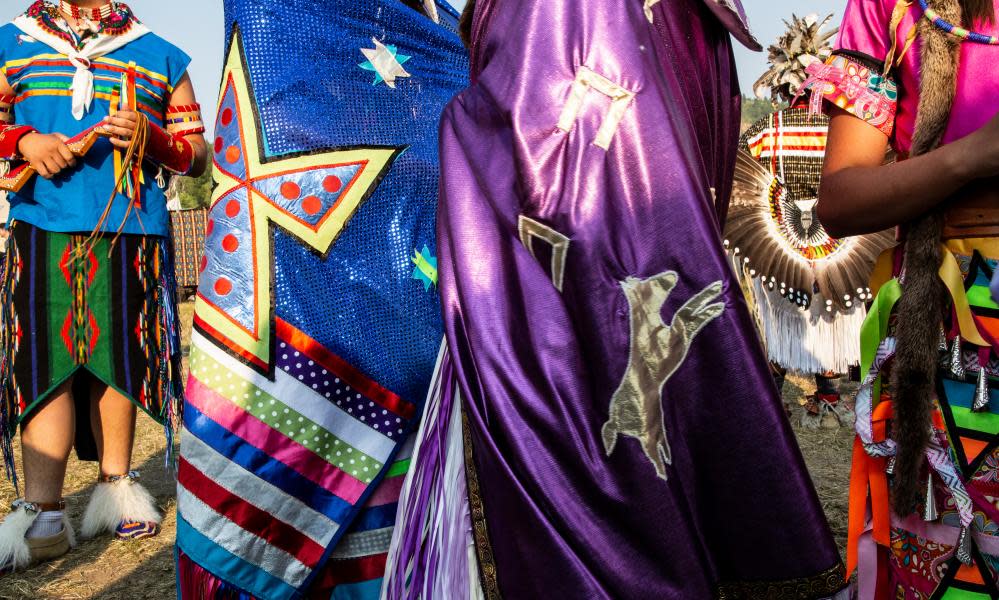Montana tribes sue US over lack of police funds: ‘They’ve been neglecting us for over 23 years’

The Fort Belknap reservation in Montana has sued the federal government over lack of funding for police resources on the vast, 1,042 sq mile reservation that has undermined the existing police force’s ability to provide basic services.
The lawsuit was filed in October after a request for $5.3m in funding, a $3.8m increase, was denied.
The reservation is home to two Native American tribes, the Assiniboine, or Nakoda, and the Gros Ventre, who refer to themselves as A’aninin or “People of the White Clay”, with a combined enrollment of 4,000 members.
“They’ve been neglecting us for over 23 years; we’ve exhausted all options,” Geno LeValdo, a member of the Fort Belknap Indian Community Council, told the Hill. “They just don’t seem like they care.”
Other Native American tribes, including the North Cheyenne Tribe on the Northern Cheyenne Indian Reservation and the Oglala Sioux Tribe in South Dakota, have filed similar lawsuits against the federal government over lack of providing adequate law enforcement services. The North Cheyenne Tribe filed their lawsuit on 18 July, this year.
“We think that this problem exists not just at Fort Belknap – it exists all over,” Terryl Matt, a lawyer representing the Fort Belknap Indian Community, told the Hill. “So, if Fort Belknap can make a change for all Indians in the United States, that would be great.”
Matt claimed the lack of funding and resources is enabling the Republican party to gain ground on the reservation, an important voting bloc for the Democratic party as the party’s sole US senator in Montana, Jon Tester, is up for re-election in 2024.
A joint resolution was heard by the Montana state legislature in January that called on Congress and the federal government to fully fund law enforcement agencies and services on all tribal reservations in Montana.
“Levels of federal funding for tribal public safety, law enforcement, and tribal courts have consistently remained insufficient to fully fund the necessary public safety activities,” noted the resolution. “Justice has eluded many Native American victims, survivors, and families, while criminal jurisdiction complexities and insufficient funding have left many injustices unaddressed.”

